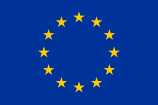Andorra and the European Union

|

|
|

|
||
|
|
||
The Principality of Andorra , which lies between the EU member states France and Spain , is not part of the European Union . Andorra is linked to the EU by bilateral international agreements.
EU-Andorra relations
Relations between Andorra and the EU are mainly governed by three international agreements:
- The basis of the contractual relationship between Andorra and the European Union is the trade agreement signed on June 28, 1990 . It provides for a customs union for industrial products and special regulations for agricultural products. According to this, Andorra is treated as an EU member when it comes to trading in manufactured goods and as a non-EU member when it comes to trading in agricultural products. The agreement entered into force on January 1, 1991. The customs regulations have been in effect since July 1, 1991.
- The Convention on the Taxation of Savings (Savings Tax Agreement) of November 15, 2004 serves to harmonize taxation between the EU and Andorra. The agreement introduced both the taxation of savings income from EU citizens with accounts in Andorra and the repatriation of part of the resulting tax revenue. A similar agreement exists between the EU and Switzerland .
- In return for his courtesy in concluding the savings tax treaty, Andorra called for a more comprehensive cooperation agreement with the EU. This agreement was signed on November 15, 2004 and has been in force since July 1, 2005. It provides the framework for extensive cooperation, especially in the areas of the environment (especially waste disposal), information, culture (including preservation of cultural heritage), health, transport, trans-European transport, telecommunications and energy.
A debate is currently taking place in Andorra that could lead to membership in the European Economic Area (EEA) in the medium term . In particular, the Andorran head of government, the social democrat Jaume Bartumeu , who was in office from June 2009 to May 2011 , spoke out in favor of further rapprochement between Andorra and the EU.
Euro
Andorra is not a member of the European Economic and Monetary Union . However, the euro has been the legal currency of Andorra and the only means of payment since 2002.
Until the introduction of the euro in France and Spain in 2002, the French franc and the Spanish peseta were de facto currency. Afterwards these were replaced by the euro, as in France and Spain.
Andorra - in contrast to San Marino , Monaco and the Vatican City - did not put its own euro coins into circulation. Corresponding discussions have been held between Andorra and the European Union since 2004. A currency agreement with the EU has been concluded and Andorra has been able to mint its own coins since July 1, 2013.
Tax policy
Because of its non-membership of the European Union, Andorra was known as a tax haven. There was no income tax or inheritance tax until the end of 2014 . Corporate taxes and a VAT were only introduced in late 2005. It is four percent on most goods and services. For EU citizens with accounts in Andorra, however, the rules resulting from the above-mentioned savings tax agreement apply.
Andorra committed itself in 2008 to adopting the OECD standards for transparency and the effective exchange of information in tax matters. The OECD then decided to remove Andorra from the “ black list ” of tax havens. Andorra is aiming for a corresponding agreement to relax banking secrecy and to fight fraud with the European Union. Andorra also wants to establish national legislation to prevent illegal financial transactions and comply with international standards.
Schengen
Andorra is not part of the Schengen Agreement ; there are intensive customs controls with the neighboring countries of France and Spain. Andorran residence permits do not entitle you to transit through the Schengen states. Residence permits from the Schengen countries entitle non-EU citizens to visit Andorra; however, it is not permitted to take up employment in Andorra.
outlook
There is great interest on the Andorran side in developing relations with the EU. Andorra is currently discussing membership in the European Economic Area (EEA), which includes Liechtenstein , Iceland and Norway in addition to the EU member states . Prior membership in the EFTA would be a prerequisite for admission to the EEA .
An application to join the EU is not on the agenda, but remains a political option. Andorra would have to fully meet the membership conditions, the so-called Copenhagen criteria . In particular, every EU member must have sufficient administrative capacity to adopt the EU acquis . The question of EU membership of a country the size of Andorra has not yet arisen: Malta , the smallest EU member state to date, has more than four times the population of Andorra.
Web links
- EAD: Andorra
- Agreement between Andorra and the European Union
- Permanent representation of Andorra to the European Union
Individual evidence
- ↑ Interview in the Frankfurter Allgemeine Zeitung from December 15, 2009: "We now want the association with the EU"
- ↑ http://www.euro-anwaerter.de/anwaerter/andorra.html
- ↑ Currency agreement between the European Union and the Principality of Andorra (PDF; 778 kB), accessed on July 12, 2012.
- ↑ http://www.tax-news.com/news/Andorra_Adopts_Income_Tax_Law____64510.html
- ↑ Travel information Andorra. Federal Ministry for European and International Affairs , accessed on March 22, 2011 .